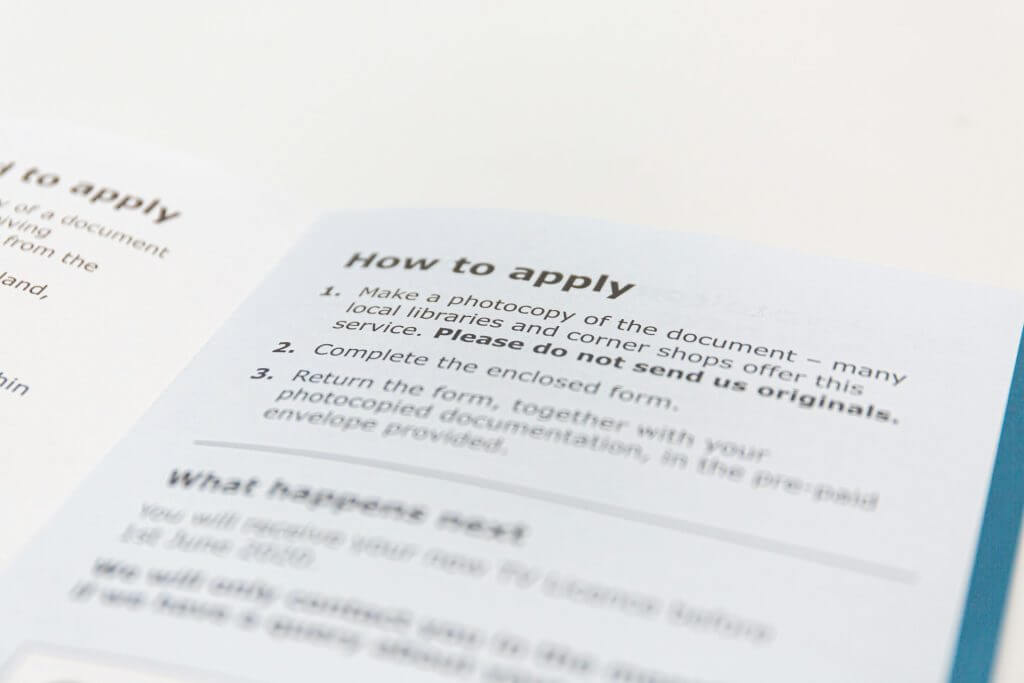Through different legal pathways, accessing to a better future in the United States is possible, especially for family members of U.S. citizens or legal residents.
The Family Immigration Petition makes family reunification possible, and, therefore, understanding what the process entails and how long a family-based immigration petition takes in the United States is key information for any individual interested in immigrating. In Jaskot Law we are committed to provide you with all the information about it.

What is a petition for alien relative?
The Petition for Alien Relative is a possible pathway offered by the U.S. immigration law whereby a U.S. citizen or lawful permanent resident may petition for a family member to obtain legal status in the United States.
This process is initiated by filing the Form I-130, which has different categories of relationship that qualify a family member for permanent residency through a family-based petition.
Who is eligible for a family-based petition?
By submitting a family-based petition, the petitioner is establishing his or her legitimate relationship with the beneficiary, who must be eligible under the following criteria:
- First preference: Unmarried sons/daughters of U.S. citizens who are 21 years of age or older.
- Second preference: Spouses and unmarried children under 21 years of age and unmarried sons/daughters over 21 years of age.
- Third preference: Married sons/daughters.
- Fourth preference: Siblings of U.S. citizens who are 21 years of age or older.
What happens after obtaining the petition for alien relative?
Once the Petition for Alien Relative is approved, the applicant receives a notice of approval from the U.S. Citizenship and Immigration Services (USCIS). Upon approval of the application, the applicant may proceed to apply for the Adjust of Status or Consular Processing to become a lawful permanent resident.
It is necessary to clarify that the approval of your Family-based Petition through Form I-130 only ratifies the family relationship between the U.S. citizen and the petitioner. This form provides a place on the waiting list for the processing of the corresponding visa, but does not grant benefits.

Adjustment of Status
If the petitioning relative is in the United States, the beneficiary may apply for Adjustment of Status to become a lawful permanent resident. The applicant will be able to obtain a green card, through the presentation of the Form I-485 (Application for Registration of Permanent Residence or Adjustment of Status).
Consular Processing
If the applicant is not in the United States, the form will be sent to the National Visa Center, or NVC. This center will forward your request to the appropriate consulate, and you will be informed when a visa becomes available.
How to follow up on my case?
Once the application is filed, the family preference category to which the applicant belongs to will determine the waiting time required to receive an immigrant visa number. The follow-up of your application can be done through the official USCIS website in the Case Status section. Here, you will need to enter your 13-character receipt ID number and press the Check Status button to access updated information.
Visa Bulletin
Another way to keep up-to-date with the immigrant visa availability for foreign applicants is the Visa Bulletin, which is a monthly publication from the U.S. Department of State that provides status information, what visa categories are available, and how many visas are allocated to each category and country.
How long does permanent residence by family-based petition take?
As mentioned above, the duration of the family petition process in the United States varies depending on factors such as the relationship to the sponsor, the nationality of the applicant and the availability of visas. However, as an estimate, we can highlight the following categories:
- For spouses of U.S. citizens: 13 to 54 months.
- For spouses of permanent residents: from 32 to 67 months.
- Form I-458 processing: 20 months.
The following are the processing times for Form I-130 for U.S. citizens and lawful permanent residents petitioning for a spouse:
| Service centers | U.S. Citizens | Legal permanent residents |
| California Service Center | 14 months | 38.5 months |
| Nebraska Service Center | 14 months | 29 months |
| Texas Service Center | 14 months | 32.5 months |
| Potomac Service Center | 14 months | 37 months |
| Vermont Service Center | 14 months | 34.5 months |
These are the processing times for Form I-485 at USCIS offices:
| Agana GU | 17 months | Manchester NH | 13.5 months |
| Albany NY | 20 months | Memphis TN | 22 months |
| Albuquerque NM | 14.5 months | Miami FL | 23.5 months |
| Anchorage AK | 16.5 months | Milwaukee WI | 14 months |
| Atlanta GA | 23 months | Minneapolis-St. Paul Paul MN | 23.5 months |
| Baltimore MD | 24 months | Montgomery A | 15 months |
| Boise ID | 18 months | Mount Laurel NJ | 14 months |
| Boston MA | 15 months | Nashville TN | 20 months |
| Brooklyn NY | 23 months | New Orleans LA | 25.5 months |
| Buffalo NY | 12 months | New York City NY | 18 months |
| Burlington VT | 12 months | Newark NJ | 17.5 months |
| Charleston SC | 20.5 months | Norfolk VA | 21 months |
| Charlotte Amalie VI | 17.5 months | Oakland Park FL | 16.5 months |
| Charlotte NC | 18.5 months | Oklahoma City OK | 16 months |
| Chicago IL | 17.5 months | Omaha NE | 19.5 months |
| Christiansted VI | 17 months | Orlando FL | 18 months |
| Cincinnati OH | 14.5 months | Philadelphia PA | 15 months |
| Cleveland OH | 13.5 months | Phoenix AZ | 14.5 months |
| Columbus OH | 13.5 months | Pittsburgh PA | 14.5 months |
| Dallas TX | 15 months | Portland ME | 13.5 months |
| Denver CO | 18.5 months | Portland OR | 17 months |
| Des Moines IA | 17 months | Providence RI | 16.5 months |
| Detroit MI | 14.5 months | Queens NY | 21 months |
| El Paso TX | 14 months | Raleigh NC | 21 months |
| Fort Myers FL | 18.5 months | Reno NV | 15 months |
| Fort Smith AR | 13.5 months | Sacramento CA | 19 months |
| Fresno CA | 16 months | Saint Louis MO | 14.5 months |
| Greer SC | 13.5 months | Salt Lake City UT | 34.5 months |
| Harlingen TX | 18.5 months | San Antonio TX | 17 months |
| Hartford CT | 15.5 months | San Bernardino CA | 15 months |
| Helena MT | 17 months | San Diego CA | 18.5 months |
| Hialeah FL | 15 months | San Fernando Valley CA | 13 months |
| Honolulu HI | 15 months | San Francisco CA | 19 months |
| Houston TX | 16.5 months | San Jose CA | 14 months |
| Imperial CA | 12.5 months | San Juan PR | 17.5 months |
| Indianapolis IN | 20 months | Santa Ana CA | 17 months |
| Jacksonville FL | 19 months | Seattle WA | 18 months |
| Kansas City MO | 20.5 months | Spokane WA | 15.5 months |
| Kendall FL | 19.5 months | Tampa FL | 15.5 months |
| Las Vegas NV | 22 months | Tucson AZ | 13.5 months |
| Lawrence MA | 14 months | Washington DC | 19 months |
| Long Island NY | 15 months | West Palm Beach FL | 16.5 months |
| Los Angeles C A | 15.5 months | Wichita KS | 15 months |
| Los Angeles County CA | 13 months | Yakima WA | 16.5 months |
| Louisville KY | 14 months |
What are the possible grounds of inadmissibility for permanent residence by family petition?
It is now necessary to remember that the family petition ratifies the relationship of the U.S. citizen or permanent resident to the petitioner, and that there are several grounds on which a family petition may be deemed inadmissible. Among the most common grounds for inadmissibility are the following:
- Criminal record: having committed certain crimes may be ground for inadmissibility.
- Health: suffering from diseases that represent a risk to public health, and not complying with vaccination requirements.
- Status and fraud: having a prior deportation order and/or false documentation may be grounds for inadmissibility.
- Security and terrorism: any involvement in terrorist activities that endanger national security are also grounds for inadmissibility.
It is important to note that inadmissibility does not mean that the family petition is immediately denied. Exceptions and exemptions are available on a case-by-case basis.
How can the Petition for Alien Relative process be accelerated?
Shortening the process of the family-based immigration may be possible if certain proactive steps are taken, such as making sure that all necessary forms and documents are completed correctly and submitted in a timely manner. Errors or lack of information are often the cause of significant delays.
In addition, it is essential to provide clear, convincing and legitimate evidence of the family relationship, such as birth certificates, marriage certificates or photographs, among others. Finally, enlisting the help of an immigration attorney can make all the difference in getting an application approved.

How can an immigration attorney help in the Petition for Alien Relative process?
It is important to understand that the Petition for Alien Relative is a complex process and is known for its long waiting times. That is why having an experienced family petition attorney can be particularly valuable when dealing with complex cases that delve into issues such as current immigration status, criminal history, or the presence of inadmissibility barriers.
A qualified attorney can guide you and help you avoid common mistakes that can result in significant delays or even denials. Jaskot Law’s committed attorneys can help you understand these issues and develop effective strategies to address them, thereby increasing your chances of success.
Frequently Asked Questions
Who is eligible for a family-based immigration petition?
Eligibility for a petition for alien relative is determined by the relationship between the petitioner and the U.S. citizen or lawful permanent resident. Categories include unmarried children over 21, spouses and children under 21, married children, and siblings of U.S. citizens over 21.
How can the Petition for Alien Relative process be accelerated?
Streamlining the petition process can be achieved by taking certain precautions, such as ensuring that all forms and documents are completed correctly and submitted on time. In addition, it is crucial to provide clear and convincing evidence of the family relationship, and the assistance of an immigration attorney is advised for the successful approval of an application.
How can I follow the progress of my petition for alien relative?
The status of your family-based petition can be tracked on the official USCIS website under Case Status. You may also consult the Visa Bulletin for information on visa availability.

